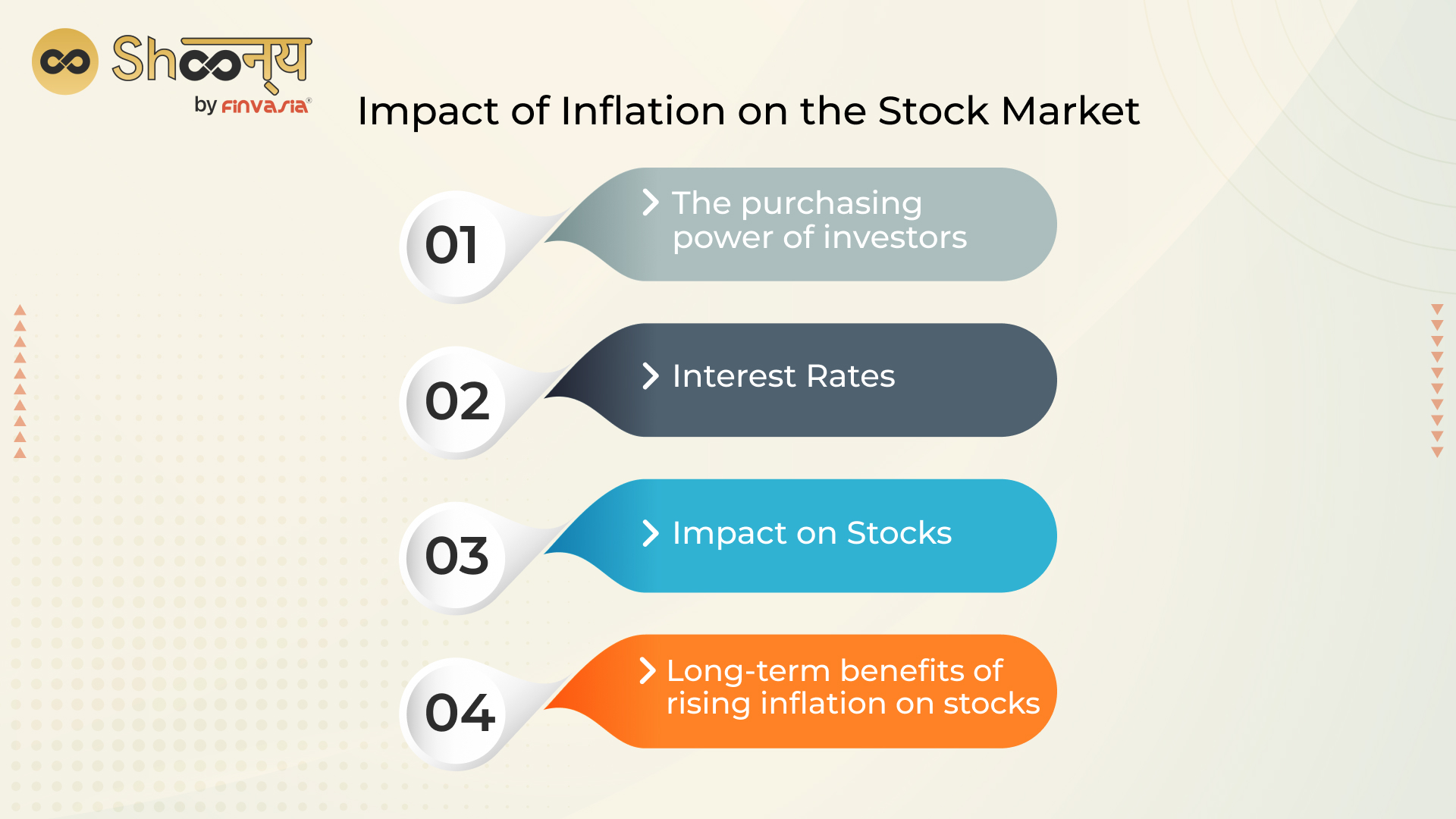Impact of Inflation on the Stock Market

The prices of shares in the Indian Stock Market are affected by demand and supply. However, the demand and the supply are dependent. They are also affected by political, social, economic, and other factors. Out of these all, Inflation is one of the major factors that impact the Indian economy.
Let us look at the details of inflation and its effects:
What is Inflation?
Inflation refers to the gradual rise in the prices of offerings. When inflation increases, the cost of purchase increases, which reduces the purchasing power in the hands of the general public. But it improves the standard of living of people due to more civilisation.
As of now, we understand the basics of inflation. It is time to be aware of the different factors and their impact on the stock market in detail.
Impact of Inflation on the Stock Market

Inflation has major impacts on the stock market and the investors in multiple ways, such as:
- The purchasing power of investors:
The rise in the prices of the shares decreases the volume of the shares that an investor can purchase. For example, the prices of the shares are Rs.10,000 today, and when the inflation rate rises to 10% then you will be able to purchase the share for only Rs.9500. However, the higher inflation rate reduces the purchasing power in the hands of the investors.
The investors would be able to purchase less number of shares by paying off the same or a higher amount of money.
- Interest Rates:
When the inflation rates are increased, RBI (Reserve bank of India) starts charging higher interest rates on the loans given to commercial banks. As a result, commercial banks start offering loans to the general public at a higher rate of interest reduces their purchase potential, which reduces their demand, and ultimately inflation gets in control of the market.
- Impact on Stocks:
As the inflation rate rises, optimistic investors speculate the rise in the profitability of the shares of the company. They start increasing their new purchases. On the other hand, pessimist investors expect a drop in the profitability of a company in the long run. So, they start selling off their holdings. Thus, it can be said that inflation affects different people differently depending on their perceptions.
- Long-term benefits of rising inflation on stocks:
The rates of inflation determine its impact. If the inflation rate is rising slowly and in a steady manner, it is a good sign of the growth in the GDP(Gross Domestic Product) of the country. If the inflation rate is rising rapidly, it is an indication of an unhealthy business environment in a country.
So, to check what and how it will impact the market a proper analysis of the trend of inflation in the past few years is crucial.
Conclusion:
In India, the economy is a mix of public sectors and private sectors. So, whenever the inflation rate rises above the limit level from the private sector end, then the government interferes in between to reduce its impact to bring back the balance in an economy.








